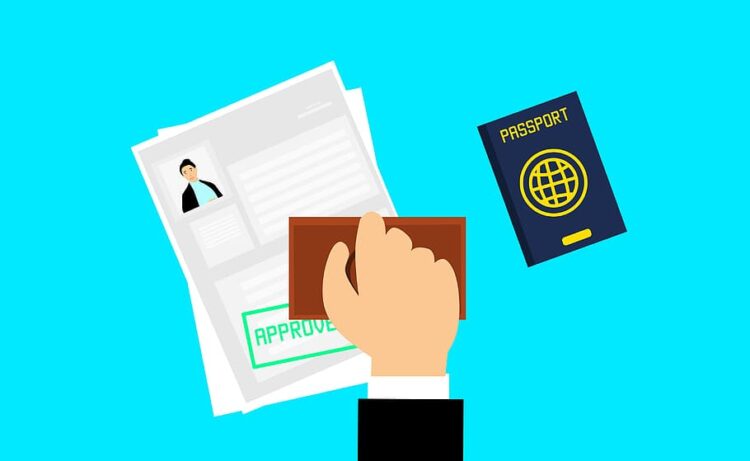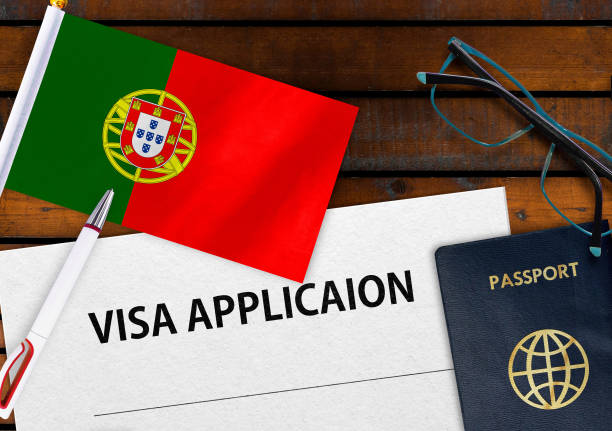Portugal is becoming a popular destination for professionals seeking new opportunities. With its pleasant weather, beautiful landscapes, and rich cultural heritage, the country offers much to those willing to work and settle there. For non-EU nationals, Portugal provides several types of work permits to enable legal employment. This guide explains everything you need to know about work permits, including the types available, how to apply, requirements, and tips for success.
What is a Work Permit Visa?
A work permit visa is an official document that allows foreign nationals to live and work in Portugal legally. It is a requirement for individuals from non-EU/EEA countries and Switzerland who wish to take up employment in Portugal. Citizens of EU/EEA countries and Switzerland do not need a work permit due to the freedom of movement within the European Union.
Portugal’s work permit system is designed to address labor shortages in various sectors. It supports short-term and long-term needs, with permits tailored to different types of work and durations.
Types of Work Permits in Portugal
Portugal offers several types of work permits, depending on the nature of the job and the length of stay.
Temporary Work Visa
- For individuals with job offers lasting up to one year.
- Ideal for seasonal work or short-term projects.
- Can be renewed if employment continues.
Long-Term Work Visa
- Suitable for those with permanent or long-term employment contracts.
- Valid for up to five years and can lead to permanent residency.
Highly Qualified Activity Visa
- Targets professionals with advanced skills in fields such as technology, engineering, or research.
- Applicants must provide proof of their qualifications and expertise.
EU Blue Card
- Designed for highly skilled workers from non-EU countries.
- Allows the holder to work in Portugal and travel within the EU.
- Requires a high salary threshold and relevant qualifications.
Seasonal Work Visa
- Meant for industries like agriculture and tourism during peak seasons.
- Valid for up to nine months.
Application Process for a Work Permit Visa
Obtaining a work permit in Portugal involves several steps. Here’s a detailed explanation of the process:
Secure a Job Offer
Before applying for a work permit, you must have a job offer from a Portuguese employer. The employer is responsible for proving that the position could not be filled by a local candidate. Your job offer should include:
- Salary details.
- Job description.
- Duration of the employment contract.
Employer Applies for the Work Permit
Your employer must apply for a work permit on your behalf through the Portuguese Labor Authority (Autoridade para as Condições do Trabalho – ACT). They will need to provide:
- A copy of your employment contract.
- A letter explaining the job role and conditions.
- Proof of efforts to hire locally.
- Copies of your passport and identification documents.
Apply for a Visa
Once the work permit is approved, you can apply for a residence visa at a Portuguese consulate or embassy in your home country. Required documents include:
- Completed visa application form.
- Valid passport.
- Passport-sized photos.
- Approved work permit.
- Proof of accommodation in Portugal.
- Financial documents to show you can support yourself.
- Health insurance coverage.
Arrive and Apply for a Residence Permit
Once your visa is issued, you can travel to Portugal. Upon arrival, you must visit the Portuguese Immigration and Borders Service (Serviço de Estrangeiros e Fronteiras – SEF) to apply for a residence permit. This step ensures your legal stay in the country.
Eligibility and Requirements for a Work Permit
To qualify for a work permit in Portugal, you must meet specific criteria. These include:
Employment Contract
- A valid job offer from a Portuguese employer is mandatory.
Qualifications
- Depending on the type of work permit, relevant qualifications, certifications, or work experience may be required.
Language Skills
- While not always required, knowledge of Portuguese or English can improve your chances of employment and integration.
Health Insurance
- Proof of health insurance is essential when applying for a visa.
Financial Stability
- Applicants must show they can financially support themselves during their stay.
Rights and Responsibilities of Work Permit Holders
Rights
Holders of a work permit in Portugal are entitled to:
- Employment Rights: The ability to work for the employer specified in the work permit.
- Family Reunification: The possibility of bringing immediate family members to Portugal.
- Social Security Benefits: Access to healthcare, pension, and other social benefits.
Responsibilities
Work permit holders must also:
- Follow the Law: Comply with Portuguese laws and regulations.
- Maintain Employment: Continue working with the employer specified in the work permit.
- Renew Permits: Ensure timely renewal of work permits before expiration.
Transitioning to Permanent Residency
After five years of legal residence in Portugal, work permit holders can apply for permanent residency. Requirements include:
- Evidence of stable employment.
- Proficiency in the Portuguese language (basic level, A2).
- Proof of integration into Portuguese society.
Permanent residency offers more flexibility, allowing you to work for any employer and access full social benefits.
Common Challenges in Obtaining a Work Permit
While the process is straightforward, applicants may face challenges:
Lengthy Processing Times
- The entire process can take several months, so start early.
Bureaucratic Complexity
- The immigration system can be challenging to navigate. Seeking legal or professional assistance is recommended.
Job Market Competition
- Competition for jobs may be high in certain industries. Research the job market thoroughly.
Tips for a Successful Application
- Prepare Thoroughly: Gather all necessary documents well in advance.
- Understand the Requirements: Be clear on the specific type of work permit you are applying for.
- Seek Professional Advice: Consult with legal or immigration experts if needed.
- Learn Portuguese: Basic knowledge of the language can help with integration.
- Be Patient: The application process can be time-consuming, so plan accordingly.
Sectors with High Demand for Foreign Workers
Portugal has a demand for workers in several industries. These include:
- Information Technology: Software developers, cybersecurity experts, and IT professionals.
- Healthcare: Doctors, nurses, and caregivers.
- Tourism and Hospitality: Hotel staff, chefs, and tour guides.
- Agriculture: Seasonal workers for farms and vineyards.
- Construction: Engineers, architects, and skilled laborers.
Cost of Living in Portugal
Understanding the cost of living can help you plan your move better. Here are approximate monthly costs:
- Accommodation: €500–€1,200, depending on the city.
- Food: €200–€400.
- Transport: €40–€60 for public transport passes.
- Health Insurance: €20–€50 for private coverage.
Work-Life Balance in Portugal
Portugal is known for its excellent work-life balance. With a standard 40-hour workweek and generous vacation policies, employees have time to enjoy the country’s beautiful beaches, historic sites, and cultural festivals.
Obtaining a work permit in Portugal can open doors to exciting opportunities in a vibrant country. By understanding the different types of work permits, meeting the eligibility requirements, and following the application process carefully, you can successfully navigate the path to living and working in Portugal. With its growing economy and welcoming culture, Portugal is an excellent destination for foreign professionals seeking career growth and a high quality of life.




